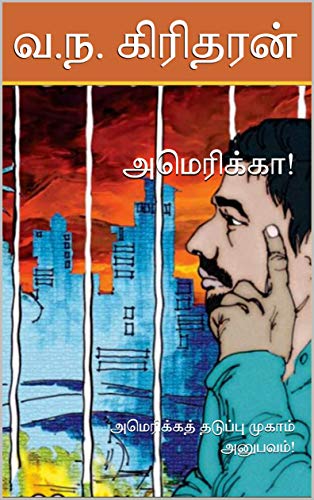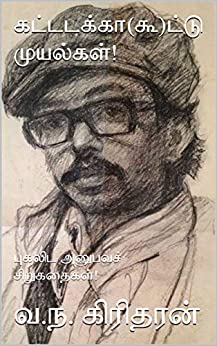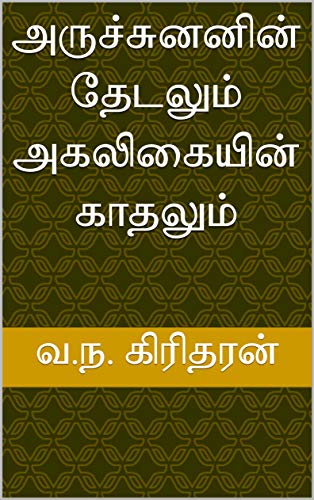 - Translation of Subrabharathimanian’s Tamil Novel CHAYATHIRAI by P.Raja. Pub: B.R.Publishing Corporation [ A Division of BRPC (India) ltd. 4222/1, Ansari Road, Darya Ganj, New Delhi-110002. Ed; Ppxiv+196; Price : Rs.200. -
- Translation of Subrabharathimanian’s Tamil Novel CHAYATHIRAI by P.Raja. Pub: B.R.Publishing Corporation [ A Division of BRPC (India) ltd. 4222/1, Ansari Road, Darya Ganj, New Delhi-110002. Ed; Ppxiv+196; Price : Rs.200. -
English enjoys its status as an international language, so naturally has a wider circle of readers. Hence the necessity for translations. And as long as there are translations, there will always be a problem on how to use English in a native situation. Sometimes the whole exercise could suffer or even go through a “cultural shock”. But not When it is left to the deft hands of master-story teller P.Raja. He has used his craft with full force while translating “Chayathirai”. The book in his hand remains relevant and poignant to the end, and he brings us as close as one could possibly get to the original. In “Chayathirai”, Subrabharathimanian has given a testimony to what global industrialisation is doing to the poorer sections of our society. The ‘fabric’ of our simple world as we know it is breaking down. This tapestry is maintained during the entire course of the book. With no solid story time, the reader is continuously waiting for it to happen; but it never does. Only instances appear. This in a lesser novel would have irked the reader. Here it has only enhanced anticipation and the subtley of the “little stories” gives one the much needed fulfillment. The reader is taken back some years to when the magnificent river Noeyal had children romping about it in its pure waters, then rudely brought back to the present where a new “chemical” life causes its destruction.
Modern society – read foreign invasion – offers nothing in return for what it takes. According to their dictate no compromise is necessary when they strive for perfection in their material world. Instead they leave behind squalor, hatred, loneliness, destruction and ultimately death. The writer has anticipated the inevitable disfiguration of our pure, ethnic life in the face of greed. The protagonists all meet death in a gruesome manner. Though they are forced to embrace death, they seem to be harbouring the morbid within them, by the vey nature of their existence. Bhaktavatchalam experiences depths of despair- much like our unemployed youth – and yet reaches his own heights of joy through Jothimani . Chettiyar hangs himself in sheer desperation while Sundari too takes her life at the end of a rope. The road to self – destruction is inevitable in the tide of filth, deprivation and poverty against which the characters play out the drama of life. The lines of the book not only leap out to us narrating the end of the town, but seems like a parable of the destruction of the universe. While peeping into the working conditions around the machines used for stitching banians and the procedure of dying, the atmosphere is agonizingly dark and dreary with no real “colour” to brighten up life save the destructive colours of the dyes, so instrumental in “death” of not only human life but the whole environment, the water drinking, why even the air they breathe. The mental status each character so vividly depicted, helps us to feel the hostile conditions in which they live, reminiscent of the squalor suffocates Oliver Twist in Fagin’s Den.
Even in the process of restricting his comparison of exploiting capitalists to a game of chess, the writer has explored the “pawns” and “kings” in the chequered game of hiera which wreck havoc on lesser mortals, without actually brings it out in the open. This had indeed transcended the novel into the realm of a true path – breaker, in revealing to us the “systems” we are forced to live with. When we sacrifice the peace of our life at the altar of commercialism, and pepper that superstitions a la goddess Saundi Amman, the bond between nature and man is lost.
As opposed to the usual exodus from village to city, this art novel throws light on what takes place if the need of a city ( foreboding if it its foreign) is thrust upon the village. If this is the ultimate aim of the writer, he has indeed succeeded in bringing us face to face with the forces that be, in transporting us to dark side of human insensitivity and makes us want to be about a new society deplete of all forms of destruction cement the bond between nature and man.
Sent by: இந்த மின்-அஞ்சல் முகவரி spambots இடமிருந்து பாதுகாக்கப்படுகிறது. இதைப் பார்ப்பதற்குத் தாங்கள் JavaScript-ஐ இயலுமைப்படுத்த வேண்டும்.




